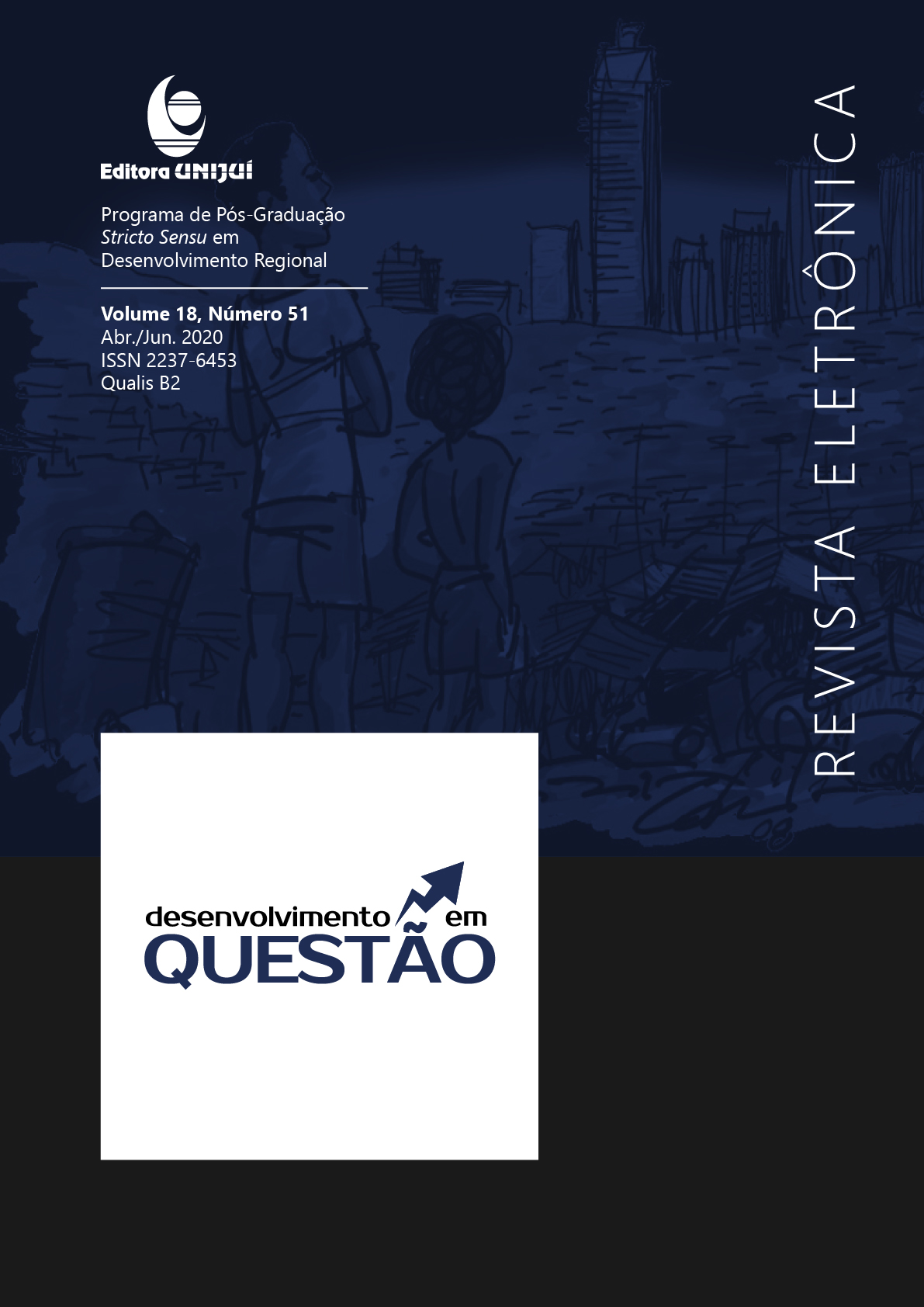O Trabalho Imaterial do Designer e a Sustentabilidade: impasses
DOI:
https://doi.org/10.21527/2237-6453.2020.51.297-316Palavras-chave:
Designer; Trabalho imaterial; Consumo; Sustentabilidade; ResistênciaResumo
A história do design acompanhou a história do desenvolvimento das indústrias, cabendo aos profissionais dessa área projetar objetos, desenvolver peças gráficas e organizar processos que favorecessem a produção e o consumo de mercadorias. Atento a esse contexto, o presente estudo teve por objetivo compreender a importância do trabalho imaterial do designer, bem como as possibilidades de sua vinculação com a sustentabilidade. Para isso, foi realizada uma pesquisa qualitativa, da qual participaram quatro designers vinculados a dois estúdios localizados em uma cidade do norte do estado do Paraná, que relataram suas experiências profissionais e seus vínculos com o meio ambiente. Os resultados demonstraram que a profissão do designer encontra várias maneiras de conectar-se com a preservação da natureza, mas diversas são as dificuldades para expandir esse vínculo. Ao final da pesquisa constatou-se que o trabalho do designer ocorre em meio a uma série de impasses que envolvem as demandas de produção das empresas. Mas não se reduz a elas, podendo também trazer para o cotidiano de suas atividades uma preocupação efetiva com a natureza, com o meio ambiente e com os seres humanos.
Downloads
Publicado
Como Citar
Edição
Seção
Licença
Ao publicar na Revista Desenvolvimento em Questão, os autores concordam com os seguintes termos:
Os trabalhos seguem a licença Creative Commons Atribuição 4.0 Internacional (CC BY 4.0), que permite:
Compartilhar — copiar e redistribuir o material em qualquer meio ou formato;
Adaptar — remixar, transformar e criar a partir do material para qualquer fim, inclusive comercial.
Essas permissões são irrevogáveis, desde que respeitados os seguintes termos:
Atribuição — Atribuição — os autores devem ser devidamente creditados, com link para a licença e indicação de eventuais alterações realizadas.
Sem restrições adicionais — não podem ser aplicadas condições legais ou tecnológicas que restrinjam o uso permitido pela licença.
Avisos:
A licença não se aplica a elementos em domínio público ou cobertos por exceções legais.
A licença não garante todos os direitos necessários para usos específicos (ex.: direitos de imagem, privacidade ou morais).
A revista não se responsabiliza pelas opiniões expressas nos artigos, que são de exclusiva responsabilidade dos autores. O Editor, com o apoio do Comitê Editorial, reserva-se o direito de sugerir ou solicitar modificações quando necessário.
Somente serão aceitos artigos científicos originais, com resultados de pesquisas de interesse que não tenham sido publicados nem submetidos simultaneamente a outro periódico com o mesmo objetivo.
A menção a marcas comerciais ou produtos específicos destina-se apenas à identificação, sem qualquer vínculo promocional por parte dos autores ou da revista.
Contrato de Licença (para artigos publicados a partir de 2025): Os autores mantêm os direitos autorais sobre seu artigo, e concedem a Revista Desenvolvimento em Questão o direito de primeira publicação.











